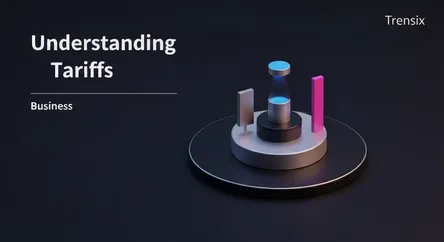Business
Understanding Tariffs

Discover what tariffs are, why they're a hot topic in global politics, and how these import taxes can impact businesses and consumer prices.
What is it?
A tariff is a tax imposed by a government on goods or services imported from another country. Its main goal is to increase the price of imported items, making domestic products more competitive. Governments use tariffs to protect young domestic industries from foreign competition (a policy known as protectionism), to generate revenue, or as a political tool to pressure other countries. They are one of the oldest forms of trade policy and can be a fixed fee per unit or a percentage of the product's value.
Why is it trending?
Tariffs are consistently in the news due to trade tensions between major global economies, such as the United States and China. These disputes often involve retaliatory tariffs, where countries tax each other's goods, disrupting global supply chains. Recent debates on national security and economic sovereignty have also brought tariffs back into focus as a strategic tool. Governments are increasingly using them to achieve geopolitical and economic goals, making them a key indicator of international relations and a hot topic in global finance.
How does it affect people?
For consumers, tariffs often mean higher prices for imported goods, as the extra cost is passed down. Businesses face increased costs for raw materials, which can squeeze profits and impact jobs. Companies that export may also face retaliatory tariffs, making their products less competitive in foreign markets. While tariffs can shield some domestic industries, they risk slowing overall economic growth by reducing trade, creating uncertainty, and contributing to inflation, which affects the cost of living for everyone.